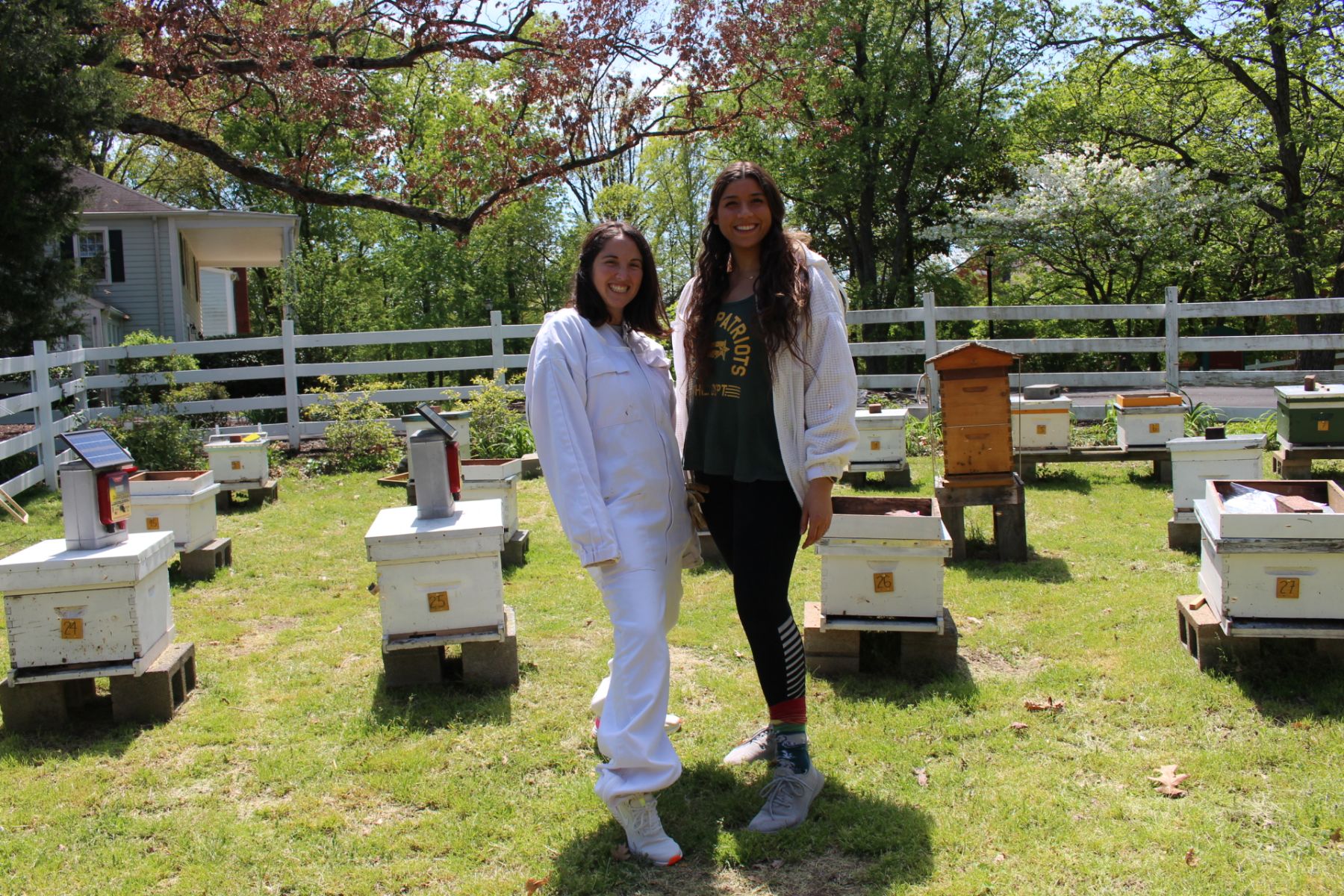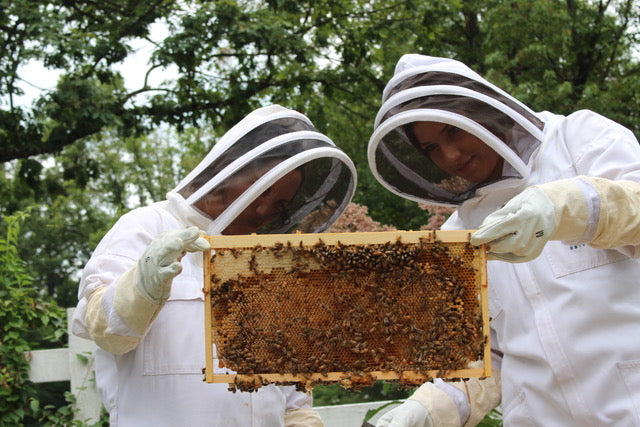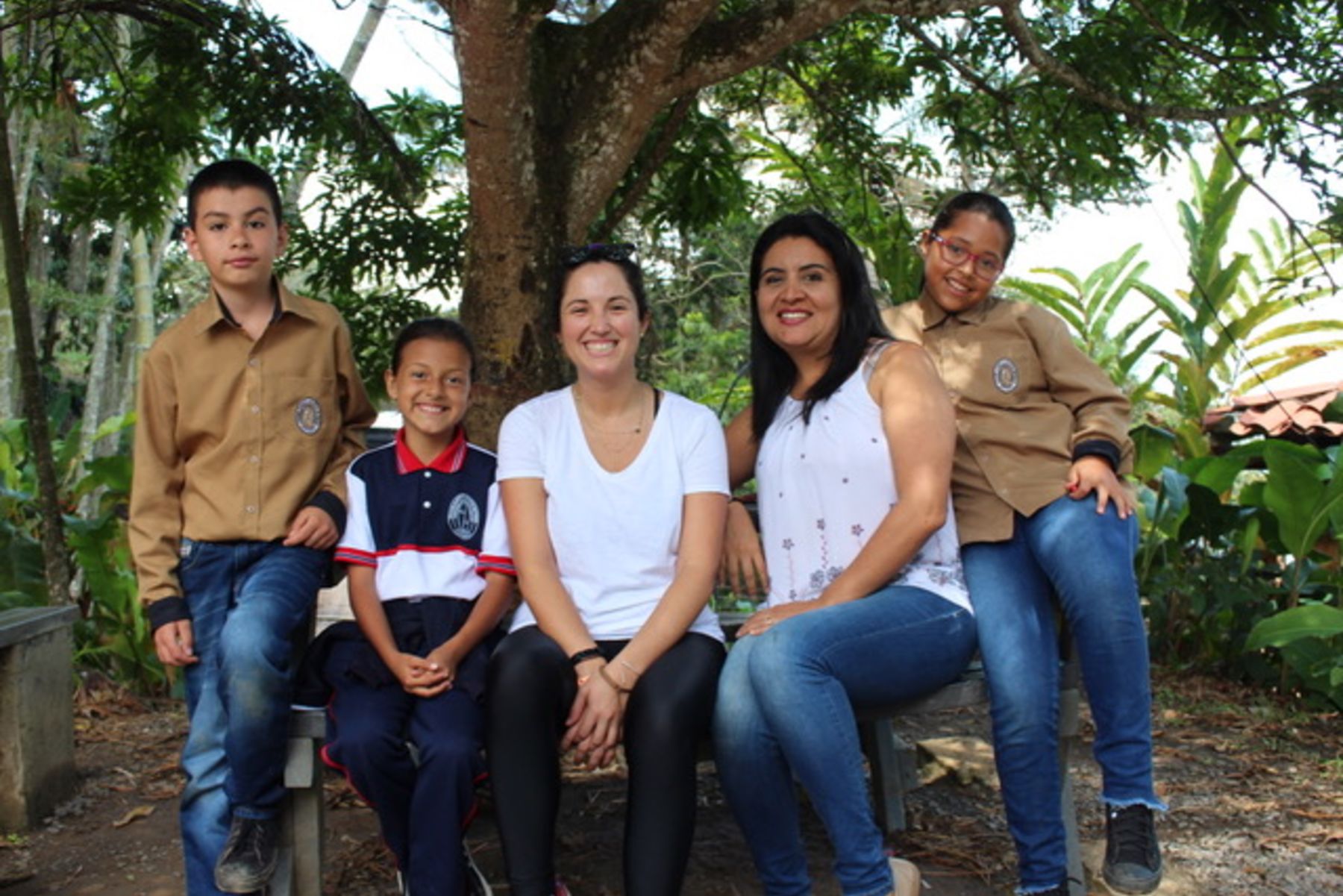Questions for The We Beelieve Project as they share their excitement for learning and the drive to create a more sustainable environment

20th of May was the day to raise awareness of the importance of pollinators, the threats they face and their contribution to sustainable development. The UN dubbed this day as World Bee Day.
35 percent of the world’s crop production depends on bees and other pollinators, according to the UN. Three out of four crops across the globe producing fruits or seeds for human use depend, at least in part, on pollinators. For centuries bees have benefited people, plants and the environment. By carrying pollen from one flower to another, they enable not only the production of an abundance of fruits, nuts, seeds, but also more variety and better quality, contributing to food security and nutrition.
Our tiny heroes are under threat. Mainly from intensive agriculture, habitat loss, improper use of pesticides and climate change.
Stephanie and Alessandra are no strangers to apiculture. They travelled to Santander, Colombia to work with the local beekeepers in the community and personally experience the passion for beekeeping among both the adults and the children. The excitement for learning and the drive to create a more sustainable environment were qualities about this community that they loved and wanted to share.
What is your story?
We are an initiative called The We Beelieve Project! We are two teachers, Stephanie and Alessandra, who want to introduce younger generations to the importance of apiculture in our environment. Stephanie is from Tampa, Florida and studied Elementary Education at George Mason University for her Bachelors and Masters degrees. She began working with kids at a very early age and found a passion in Education from her mother who worked as a teacher for most of her life. Stephanie is currently teaching Upper Elementary grades within Fairfax, VA.Alessandra is originally from Lima, Peru. She studied Early Childhood Education through Well-being and Nature at George Mason University. She grew up in the Peruvian jungle, which helped her to develop an appreciation for nature and the environment. Alessandra is currently working at a Montessori school in Washington, DC.
What brought you to this project and what are its main goals?
Destiny? We both, in different years, took the same beekeeping class at George Mason University. Stephanie had been working with our teacher and mentor, German Perilla, for a while. After going to Colombia with him to see his beekeeping projects to empower communities, she decided to start the "The We Beelieve Project" with the desire to help children understand the importance of bees in our environment. When Alessandra took the beekeeping class, German decided to introduce us after seeing that we shared the same passions and goals. And he was right! Since then, we've been working together on this amazing project.
Our main goal is to create a collaborative partnership between different schools around the world where we can, all together, learn about bees and the importance of them in the environment. We believe that by educating children about sustainable ways to care for bees, they will be able to create a better environment for their communities. We use the Sustainable Development Goal (SDG’s) laid out by the United Nations to guide our students to develop their projects.
Why is apiculture important and how it is related to sustainability?
Apiculture and sustainability are essentially one in the same. The goal of apiculture goes far beyond beekeeping and promotes the focus on the education, preservation, and well-being of our ecosystems. Balance within an ecosystem is necessary to maintain sustainability practices and help our Earth thrive. Beekeepers help ensure that native foliage is maintained while also helping bees on their natural course of work.
How can we individually support apiculture?
Supporting apiculture is actually much easier than one might think, and can be done without putting on a bee suit! The most beneficial way to support apiculture is to research the native flowering plants that grow in your region, then plant as many as you can in your yard. These flowering plants will provide bees with a safe space to collect pollen and nectar while increasing their food supply. In that very same yard space, you can also provide bees (and other pollinators) with a source of water. Be sure to keep the water shallow, so the bees do not drown. Lastly, another incredible way to support apiculture is by purchasing bee products from your local beekeepers rather than the larger grocery stores. This way beekeepers can continue to fund their hives and keep our pollinators happy.
What are your hopes for the future of this project?
Our hopes with this project are to be able to educate children about the importance of bees in our environment. We want to motivate younger generations to live a more sustainable life by using sustainable practices that can create a positive impact in their communities. We want to share our passions so more children can know that if you work hard and stay kind, dreams can come true.



